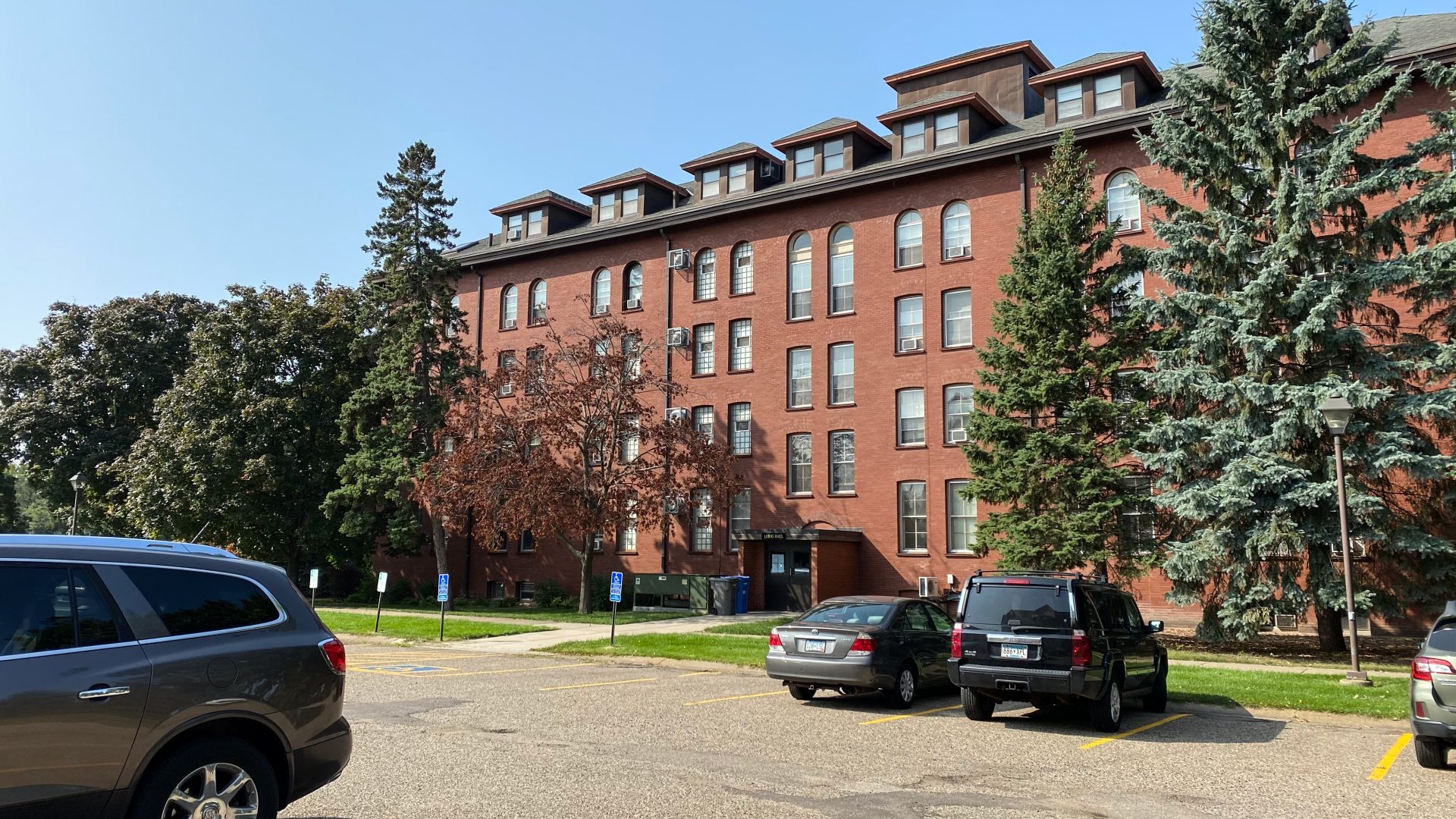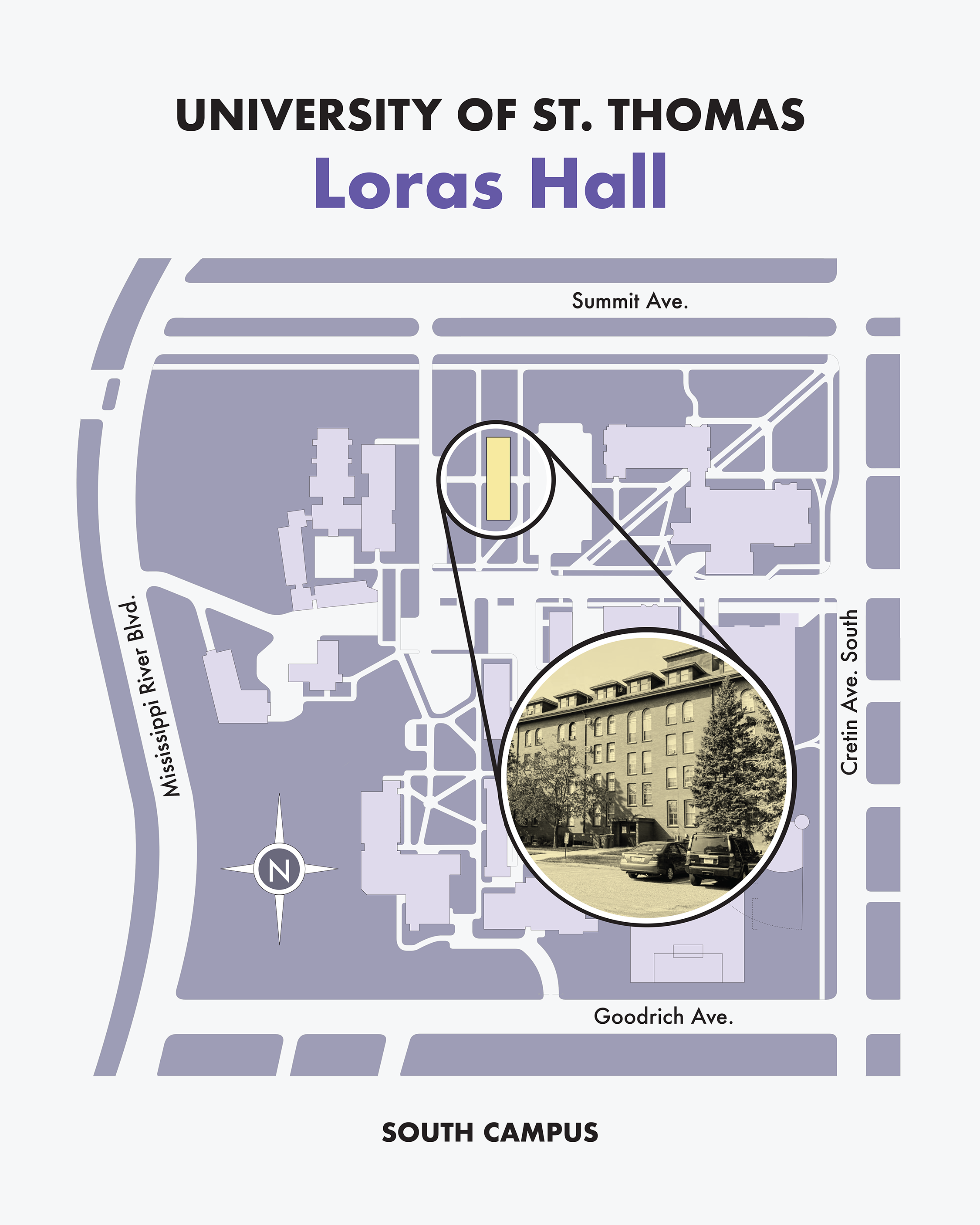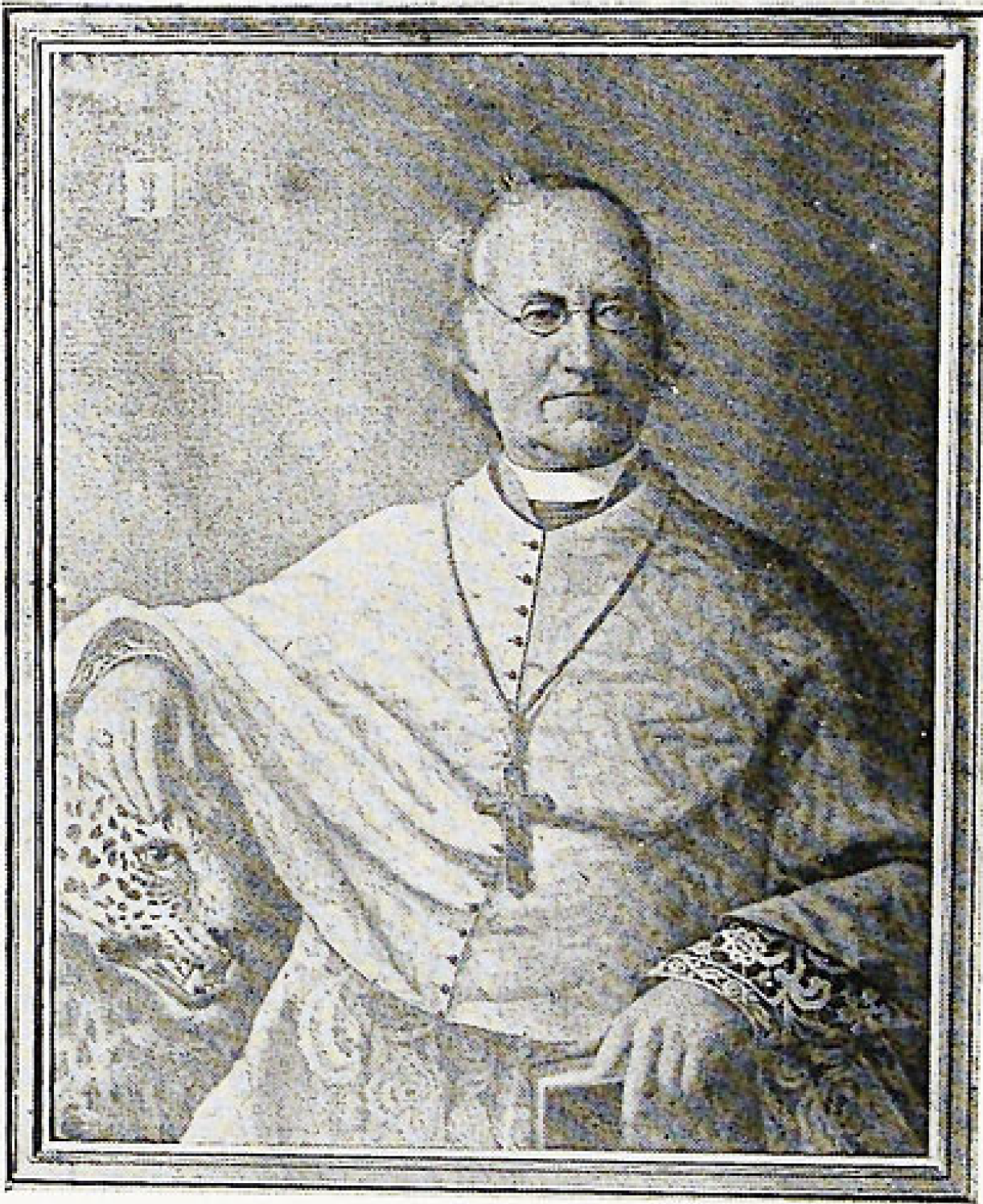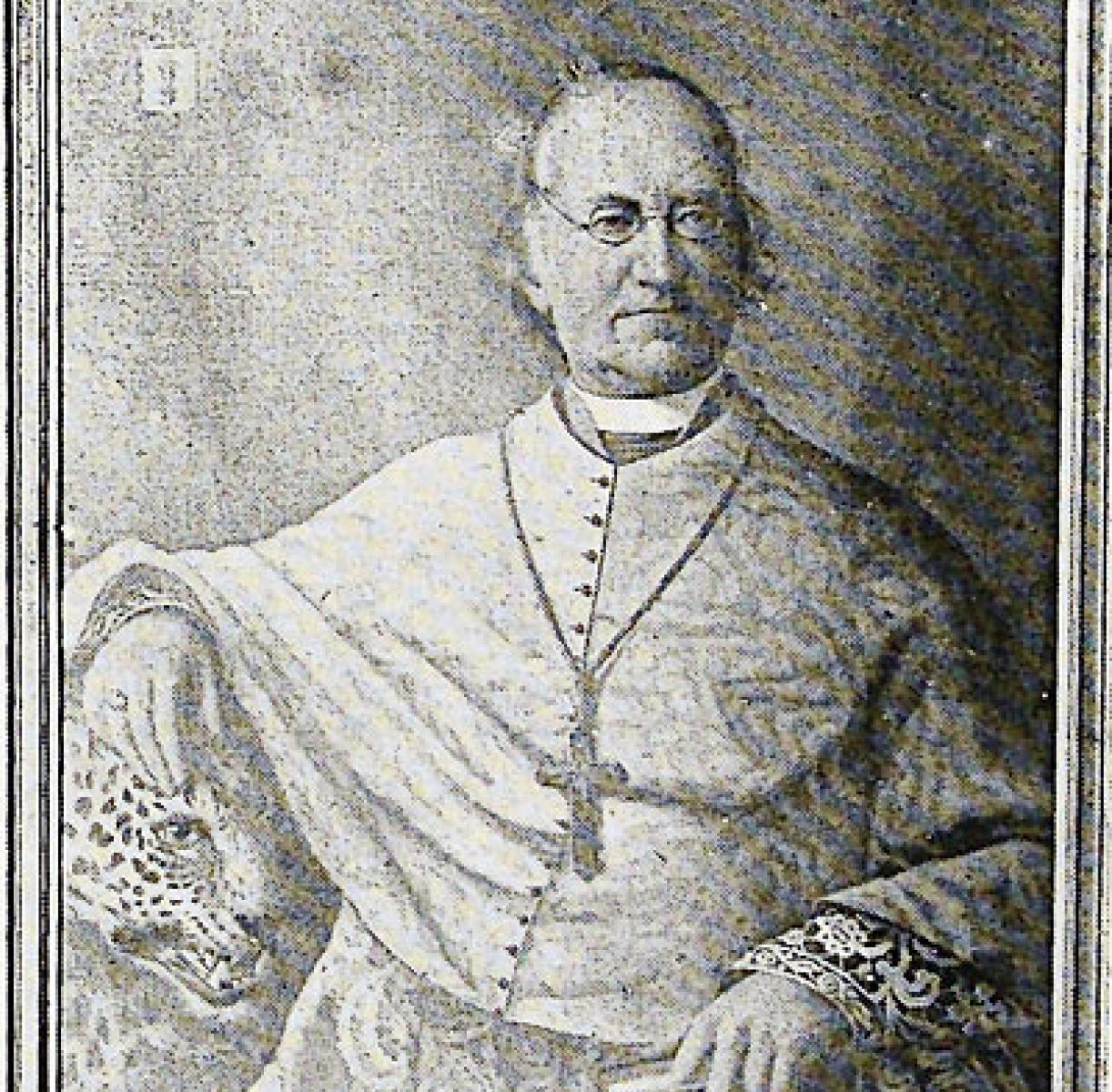

(Maggie Stout/TommieMedia)
Bishop Mathias Loras, the namesake of Loras Hall on South Campus, was found to have enslaved a woman named Marie Louise for 16 years, President Julie Sullivan wrote in an email to the St. Thomas community Tuesday.
The information surfaced from a researcher who was studying the Bishop’s personal records at Loras College in Dubuque, Iowa.
“This is obviously disturbing news,” Sullivan wrote. “A core conviction of the University of St. Thomas is to see and respect the dignity of every human being; the sin of slavery directly contradicts that conviction, and Bishop Loras’ participation in slavery is reprehensible.”
Instead of immediately renaming Loras Hall, Sullivan wrote that the university is committed to comprehensive truth and a reconciliation approach which “cautions us against merely erasing his name.”
Loras purchased Marie Louise in 1836 for $800 while living in Mobile, Alabama. After moving to Iowa, he continued to hire her out to others and used the proceeds from her labor to help build various ministries at Loras College.
Loras Hall was originally constructed as one of three residence halls for The Saint Paul Seminary and Loras Hall, Cretin Hall and Grace Hall were each named for the three early ecclesiastical leaders of the area, according to Sullivan.
As the archbishop of Dubuque, Loras was the ecclesiastical leader until the Diocese of Saint Paul was created in 1850, when Bishop Cretin was named the first bishop of St. Paul.
Cretin and Grace halls are still used as residence halls today, while Loras Hall is used for university offices.

Sullivan also announced the establishment of a committee to develop principles on renaming.
The committee will be co-chaired by Professor Gregory Sisk, Pio Cardinal Laghi Distinguished Chair in Law and Co-director of the Terrence J. Murphy Institute for Catholic Thought, Law, and Public Policy, and Yohuru Williams, Distinguished University Chair and Founding Director of the Racial Justice Initiative and will include students, faculty, staff, alumni and trustees.
“The committee is charged with first, conducting research to determine best practices related to this issue, and second, considering St. Thomas’ unique history, developing principles that will guide the university to respond when presented with recommendations to rename structures, spaces, programs, etc,” Sullivan said.
Joey Swanson, Burke Spizale, Justin Amaker and Emily Haugen contributed to this report.



